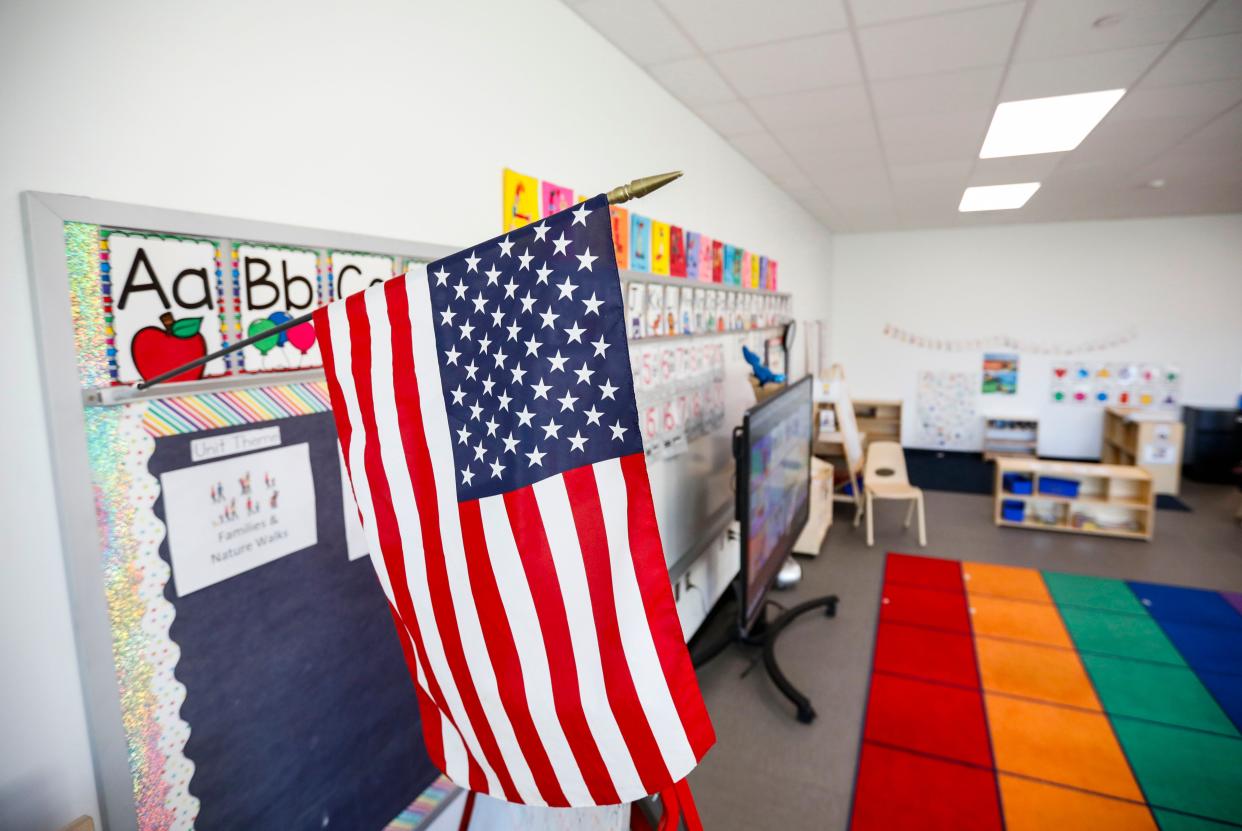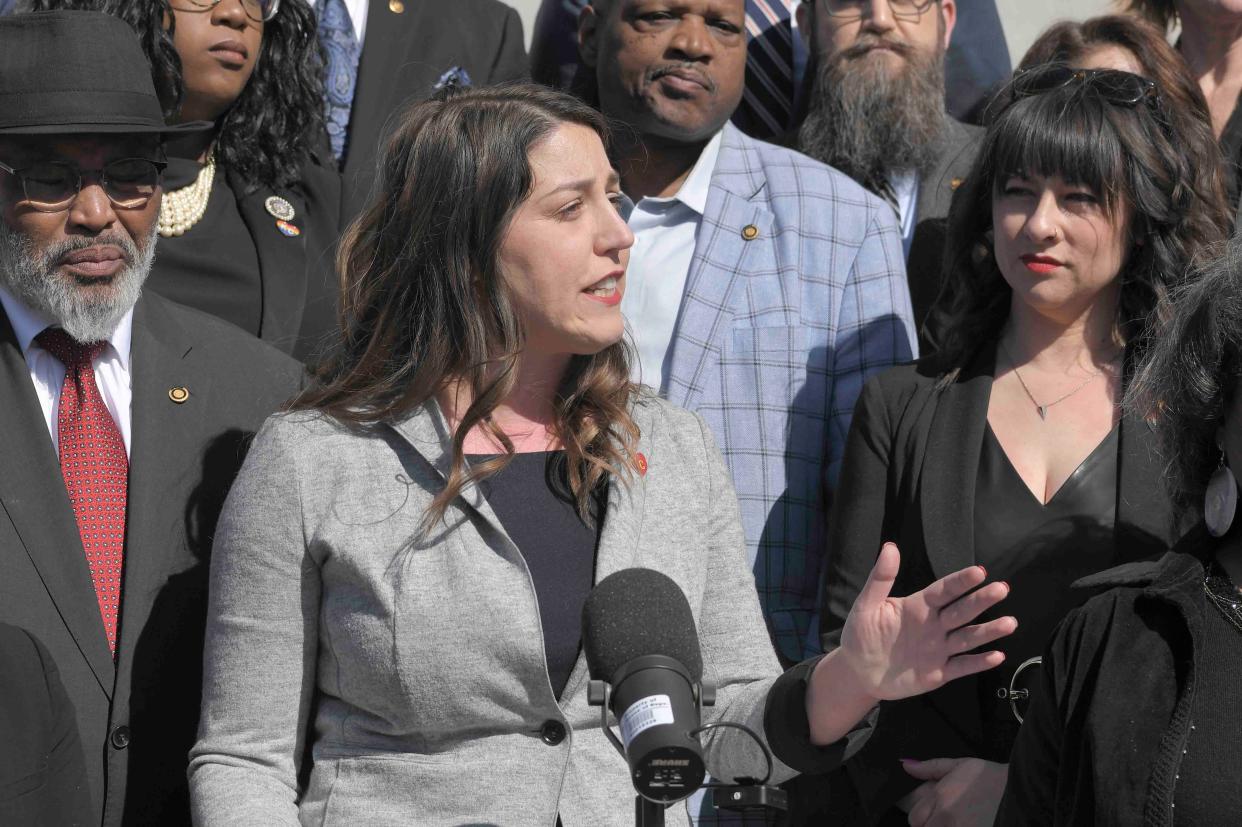MO legislature passed an omnibus education bill. What does it mean for local schools?
The Missouri House passed an omnibus education bill on April 18, sending it to Gov. Mike Parson for final review and approval.
What originally began as a 12-page bill expanding MOScholars, the state’s tax credit scholarship program for K-12 students, ballooned into a 167-page bill full of items included in Senate negotiations to ensure it passed out of the chamber.
However, the legislation has drawn criticism from both sides of the political aisle, as shown when it narrowly passed the Missouri House with a vote of 82-69. Democratic activists have issued calls on social media for Parson to veto parts or all of the legislation, which he has yet to sign into law.

Chief among those concerns is the fear that, by enabling school choice through this program, public school districts would suffer from decreased enrollment and funds.
An analysis by the Missouri Budget Project estimates that, if 10% of the 22,352 students at Springfield Public Schools left the district, the school district would lose more than $9 million in revenue. If the same were to happen to Republic, with 5,027 students, it would lose more than $2.8 million.
Springfield Superintendent Grenita Lathan said in a statement, “Springfield Public Schools continues to evaluate the many implications of SB727, which is a complex piece of legislation. One of the primary issues is the potential negative impact on the State of Missouri’s ability to sustain adequate funding for K-12 public education in the long-term. We depend on sufficient state funding to meet the needs of our 24,500 students. We are concerned that SB727 will create significant fiscal challenges for Missouri, and for public schools, in the years to come.”
Matt Pearce, superintendent of Republic schools, said that, while there were things in the bill that he was in favor of, it raised concerns about funding.
“There are some things about that bill that we like. There are some things about that bill that we don’t like,” he said. “The thing that I am the most concerned about as a superintendent is keeping up with some of the costs and requirements that are part of that bill and making sure that, as a school district, we can have a viable budget and pay our teachers and have programs for our kids that meet their needs.”
How does the MOScholars program work?
The Empowerment Scholarship Accounts Program is currently only available in charter counties and Missouri cities with a minimum of 30,000 residents. The Missouri Treasurer’s office acts as the steward of this program, which last year raised nearly $17 million.
Families with an income that is 200% of the amount used to qualify for the free and reduced school lunch program are eligible for the current program. This legislation would increase that to 300%, meaning that a family of four would qualify if they made up to $166,500, based on current reduced lunch eligibility standards.
Right now, the MOScholars program is capped at $50 million in tax credits, but this legislation will increase that to $75 million, including a provision to tie the funding to the “percent increase or decrease in the amount of state aid distributed to school districts.”
Under the current model, the MOScholars program gives students more than $6,000 for tuition and other related educational expenses. The program is funded by donations made to Educational Assistance Organizations. These groups give scholarships to students, and the donors are allowed to claim a tax credit on their donations.
When fully implemented, the fiscal note anticipates that the legislation will incur costs of more than $467 million, a fact that drew the ire of lawmakers who watched items be stripped from the budget and Democratic budget amendment denied due to the risk that the state’s budget surplus would dry up in the coming years.

“The concern is that the expansion of the voucher program for families that make up to $163,000 a year to take public money away from general revenue and essentially give them tax credits, that is going to hurt the amount of money we have to spend not only on public education, but on health care on infrastructure and all of these things that we deeply care about,” said House Minority Leader Crystal Quade.
More: State Senators approved an omnibus education package with expanded school choice program
What else is included in the legislation?
This bill would allow Boone County to establish charter schools, which would be independent of local school districts. Lawmakers from Boone County spoke out against the legislation in the Missouri General Assembly, and recently wrote a letter to the governor expressing their displeasure with this, saying that local schools and constituents don’t want it.
Additionally, the bill would raise the minimum teacher pay in Missouri from $25,000 to $40,000. This change would be included in state statute for the 2025-26 school year. Additionally, teachers who have master’s degrees and at least 10 years experience in the field would see a bigger salary increase, earning at least $46,000 in that school year and increasing to $48,000 by 2027-28.

However, Pearce raised concerns about the inflationary triggers that will push that level up over time. The Republic school district already offers a starting pay of $41,900.
“That’s a wonderful thing but there is no guarantee that smaller districts, or even districts the size of Republic, are going to get any reimbursement from the state to help with that,” Pearce said. “It is going to be a struggle for local districts to keep up.”
Pearce previously worked in Springfield and noted it is the goal of most districts, including Springfield and Republic, to offer competitive pay and reward teachers for the hard work that they do.
“We need to pay them the best that we can and we need to make sure we have programming for kids,” Pearce said.
He said if the budgets get too tight, districts may have to go to local taxpayers and ask for more support to meet the growing expectations. In fact, the Missouri Budget Project analysis estimates that Republic would need to increase local revenue to the school by 2.41% to cover the loss of 10% of its students opting to participate in the state voucher program.
“Anytime you are losing students or losing funding, it is a concern,” Pearce said. “How quickly do larger quantities of students or families take advantage of this? I’m not real sure. In our region we don’t have a ton of private schools that students are attending but that certainly could change.”

The legislation also includes more teacher recruitment and retention scholarships and adjusted the calculations for school aid such that the school’s attendance and enrollment would be factors in the funding formula.
Additionally, it offers funding incentives to school districts opting to continue a five-day school week, while requiring school districts with more than 30,000 residents to retroactively approve changes to a four-day school week through a vote of the people.
Pearce said while there are parts of the bill that will help districts take care of their teachers and students, there is no guarantee of state funding for some of the new or expanded expectations.
“What is a little frustrating is that there is a guarantee of vouchers and charter schools in Boone County, vouchers all over the state, but for all the other public schools, there is no guarantee from the state of Missouri that we are going to get the financial help,” he said. “This bill is quite extensive in terms of the fiscal cost associated with it. I would just like our state legislators and our governor to back us in what we do each and every day and give us guarantees.”
This article originally appeared on Springfield News-Leader: Missouri educators share concerns about omnibus education bill
